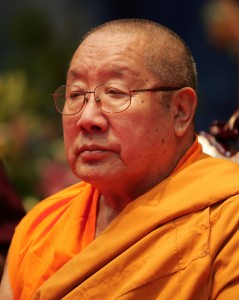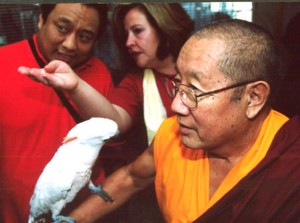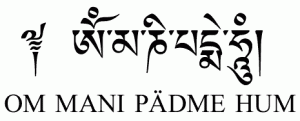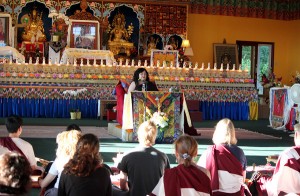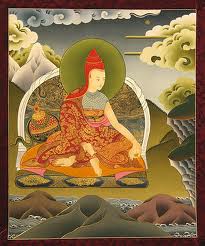The following is an excerpt from a teaching by Jetsunma Ahkon Lhamo offered at Palyul Ling Retreat in 2012:
So I think as we ascend to the higher teachings, we have to remember the bodhicitta. We have to remember that if we are not kind, there’s nothing that we are doing that’s useful. If we are not kind, there’s no way we are going to be able to keep our practice going, because we will forget the suffering of sentient beings. And if we do that, we are lost. We forget why we are practicing. We don’t practice. And then if we are lucky, we may see a person whose suffering can be read on their face. You can see that. And if you are fortunate enough to see that, it may remind you that it is time to do your practice.
I promise you, you won’t forget to do your practice for the rest of the year if you meditate on the suffering of sentient beings every day – even just for five minutes. Ten minutes is better. But if we can manage to do that, that’s what keeps us going. Otherwise our practice becomes dry. It’s too intellectual. We reason with our practice, and we kind of argue with our practice. And yet with bodhicitta, it’s impossible to do that. How can bodhicitta be the wrong thing to do? How can bodhicitta be something that you can skip? We must be kind. His Holiness the Dalai Lama and all the high lamas that I have ever heard have always said that you must be kind. That’s what’s happening. So I have pretty much stuck with teaching bodhicitta all my life, and I’ve been doing this for about 30 years.
Bodhicitta is beautiful. It is nourishing. It’s like food. If you keep yourself nourished by practicing the bodhicitta, you’ll continue to be full and have confidence, and be able to benefit sentient beings even though it seems so hard to keep going. We all have jobs. It seems so hard to keep going but if you remember the bodhicitta, and that it is your reason for practicing, you absolutely will not give up. I promise you. That is the answer.
Everyone I’ve talked to has this problem—practicing for part of the year, and keeping that going. Although it’s not true of Tibetans necessarily, it is true of Americans. Tibetans were brought up in a culture that is all about loving-kindness, and the Dharma is part of their entire system. It’s in their blood and it’s in their brains and it’s everywhere. But we Americans like to have reasons for things. The best thing to do is to stop being so prideful and go back to the very reason why you are here. You are not here to wear a fancy robe. You are not here to receive high teachings and walk around so prideful. No, you are here first of all because you love His Holiness; and then you are here because you know that sentient beings suffer and that you can help. I know of nothing that is more precious than that. You can help. We forget that. We think the practice is about us, making advances. We should make advances in our practice. It’s true. We should. And yet we have to remember that the true reason why we practice is love.
Now if there is anything that I’ve said that offends you, I’m sorry, but not really. I will sit here and pound bodhicitta into your heads until I no longer have the opportunity because it is what I believe and what I know will bring benefit to the world. It’s what brought His Holiness to us. It is what will bring him back.
If we keep our promises and benefit sentient beings, he will return to us. Maybe he already has. Who knows? But it is our job to call him with our hearts by practicing in the way that he taught us.
Copyright © Jetsunma Ahkon Norbu Lhamo All rights reserved
